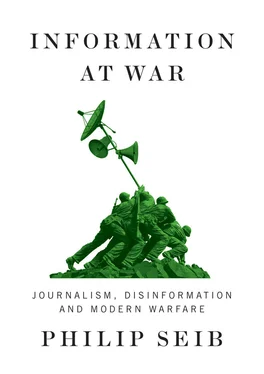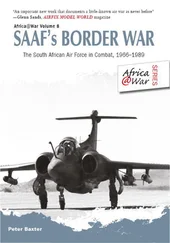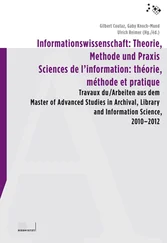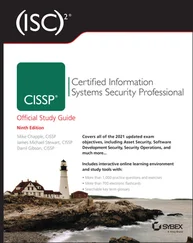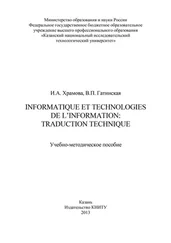1 ...7 8 9 11 12 13 ...16 When reading this on a page today, Roosevelt’s words still have power, but not as much as when they came directly from the White House into living-rooms, forging a connection between the country’s president and its citizens.
For his part, Murrow was working toward the same end: to present the view from Britain and push Americans toward realizing the importance of providing the British with the tools they needed to continue the fight. His colleague Eric Sevareid later wrote: “Murrow was not trying to ‘sell’ the British cause to America; he was trying to explain the universal human cause of men who were showing a noble face to the world. In so doing he made the British and their behavior human and thus compelling to his countrymen at home.” 26Excerpts from Murrow’s broadcasts illustrate this:
[After visiting an air raid shelter at 3:30 a.m.] How long these people will stand up to this sort of thing I don’t know, but tonight they’re magnificent. I’ve seen them, talked with them, and I know.
[About Londoners] They’ve become more human, less reserved; more talkative and less formal. There’s almost a small-town atmosphere about the place … There’s been a drawing together.
[Watching a German air attack] The fires up the river had turned the moon blood red. The smoke had drifted down until it formed a canopy over the Thames; the guns were working all around us, the bursts looking like fireflies in a southern summer night … Huge pear-shaped bursts of flame would rise up into the smoke and disappear. The world was upside down. 27
Murrow knew that the most effective way to present news is by wrapping issues into stories of people with whom the audience could empathize. When his sonorous voice came into American living-rooms from London’s streets or the CBS studio there, the information he provided – forceful, but not overtly political – was about the British people and how they managed in their transformed world. Murrow later reflected on the challenges he and his colleagues faced: “In reporting this new kind of warfare we have tried to prevent our own prejudices and loyalties from coming between you and the information which it was our duty to impart. We may not always have succeeded. An individual who can entirely avoid being influenced by the atmosphere in which he works might not even be a good reporter.” 28
As Murrow’s observation indicates, he and other pro-interventionist journalists had to walk an ethical tightrope: reporting in a straightforward way about a topic that stirred mixed feelings within the news audience, while still recognizing that they were being “influenced by the atmosphere” in which they worked. Being physically distant from his audience may have limited Murrow’s understanding of the power of his broadcasts, but those watching the trends in American public opinion recognized the effect of his words.
Librarian of Congress Archibald MacLeish, speaking at a New York dinner in Murrow’s honor just a few days before the Pearl Harbor attack, addressed the historic significance of Murrow’s voice spanning an ocean:
You destroyed the superstition of distance and time … You destroyed in the minds of many men and women in this country the superstition that what is done beyond three thousand miles of water is not really done at all; the ignorant superstition that violence and lies and murder on another continent are not violence and lies and murder here … It was not in London really that you spoke. It was in the back kitchens and the front living-rooms and the moving automobiles and the hotdog stands and the observation cars of another country that your voice was truly speaking. And what you did was this: You made real and urgent and present to the men and women of those comfortable rooms, those safe enclosures, what these men and women had not known was present there or real. You burned the city of London in our houses and we felt the flames that burned it. You laid the dead of London at our doors and we knew the dead were our dead – were all men’s dead – were mankind’s dead – and ours. 29
Such was – and is – the power of information. A new technology – radio – had enhanced information’s effects, just as television would do when it arrived some years later. This occurred most strikingly during the Vietnam War (or, as it is known by many Vietnamese, “the American War”).
The Early Stages of the Vietnam War: John F. Kennedy and “Managing Information
One of the most enduring myths about the Vietnam War is related to information: “The news media lost the war.” According to this notion, negative and inaccurate news reporting about the conflict so poisoned American public opinion that it became politically impossible for the government to pursue the fighting with the patience and aggressiveness needed to win. 30
Granted, information provided by the news media helped to fuel dissatisfaction with the conduct of the war, especially during the presidencies of Lyndon Johnson and Richard Nixon. But journalists were mostly following a path that was charted by government policymakers and that led into the much-discussed “quagmire” in which the US war effort foundered. Clark Clifford, who succeeded Robert McNamara as Secretary of Defense during Johnson’s final year in office, later wrote:
The press made errors in reporting, as it does in every war, but the bulk of the reporting from the war zone reflected the official position. Contrary to right-wing revisionism, reporters and the antiwar movement did not defeat America in Vietnam. Our policy failed because it was based on false premises and false promises. Had the results in Vietnam approached, even remotely, what Washington and Saigon had publicly predicted for many years, the American people would have continued to support their government. 31
Much of the analysis of news media performance during the Vietnam years has focused on coverage of the Tet offensive in early 1968, which will be addressed later in this chapter. But the government–press relationship, which had been relatively cozy during World War II, was changing earlier than Tet, notably during the presidency of John F. Kennedy.
Two episodes not related to Vietnam set the stage for later tensions. Both centered on Cuba: the Bay of Pigs invasion in April 1961 and the Missile Crisis of October 1962. In each instance, the flow of information to the public was significantly limited by behind-the-scenes agreements between the White House and leading news organizations.
Trying to maintain secrecy about the upcoming American-sponsored invasion of Cuba, the White House pressured the New York Times and several other publications to withhold, or at least modify, stories before the invasion date, lest they tip off Fidel Castro’s regime about the coming attack. They agreed and did so. Nevertheless, the invasion was a disaster; almost all of the 1,400 US-backed anti-Castro Cubans were killed or captured as they went ashore at the Bay of Pigs on Cuba’s southern coast.
Although Kennedy had orchestrated the pressure campaign to limit coverage, he later told Times managing editor Turner Catledge, “Maybe if you had printed more about the operation you would have saved us from a colossal mistake.” Catledge later observed: “On the one hand he condemned us for printing too much, and in the next breath he condemned us for printing too little. He wanted it both ways, and he did not change my view that the newspapers, not the government, must decide what news is fit to print.” 32
As we will see, journalists deferring to the White House is not uncommon when “national security” is cited. Those in the higher echelons of government often seem to believe that “We know more and we know better than you do,” with “you” encompassing not just the news media but the broader public as well. Sometimes the officials are correct; the breadth of their information sources – which may include the intelligence community and others not available to the press or the public – might give them enhanced perspective on events of the moment. But a government’s access to information does not, in itself, always lead to wisdom, and journalists generally agree that they should resist pressure even when it is dressed up as an appeal to patriotism.
Читать дальше
